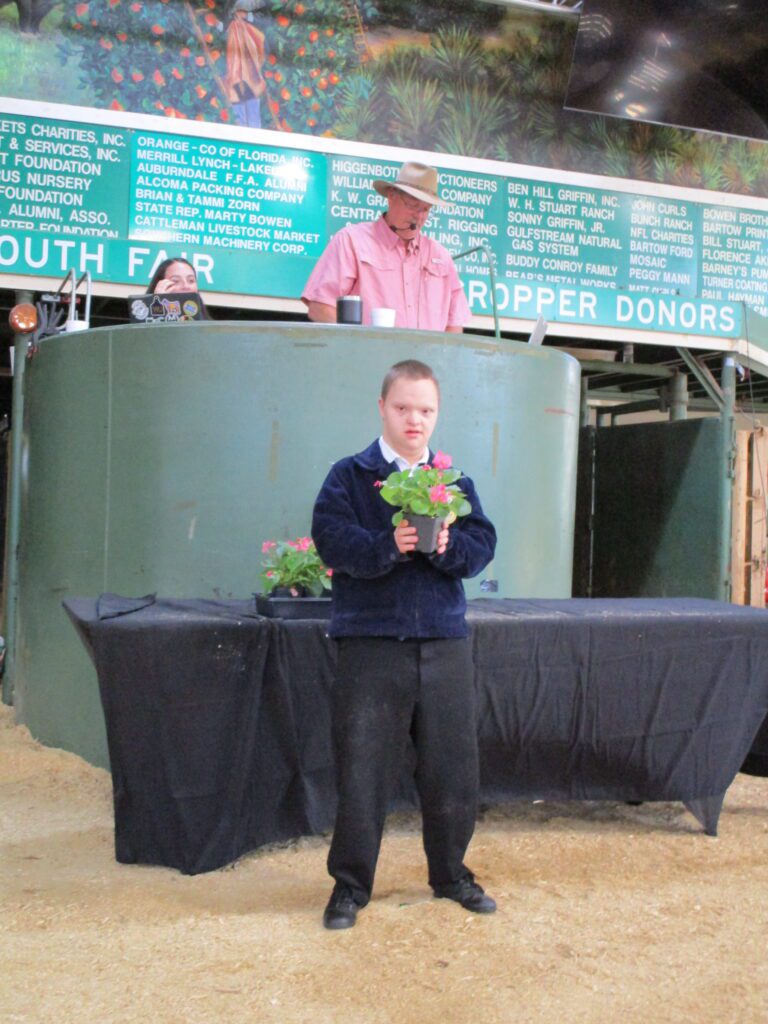ESE Educators Use Ag to Teach Transferable Skills
by PAUL CATALA
The school days can be challenging, but among the guidance, lessons, and direction sprout an affinity for agriculture and a love of learning about it.
Seeing that passion for Florida agriculture take root is exactly what teachers Robert Parmer and Barbara Clayton say makes their jobs so rewarding.
Both are FFA advisers and Exceptional Student Education educators.
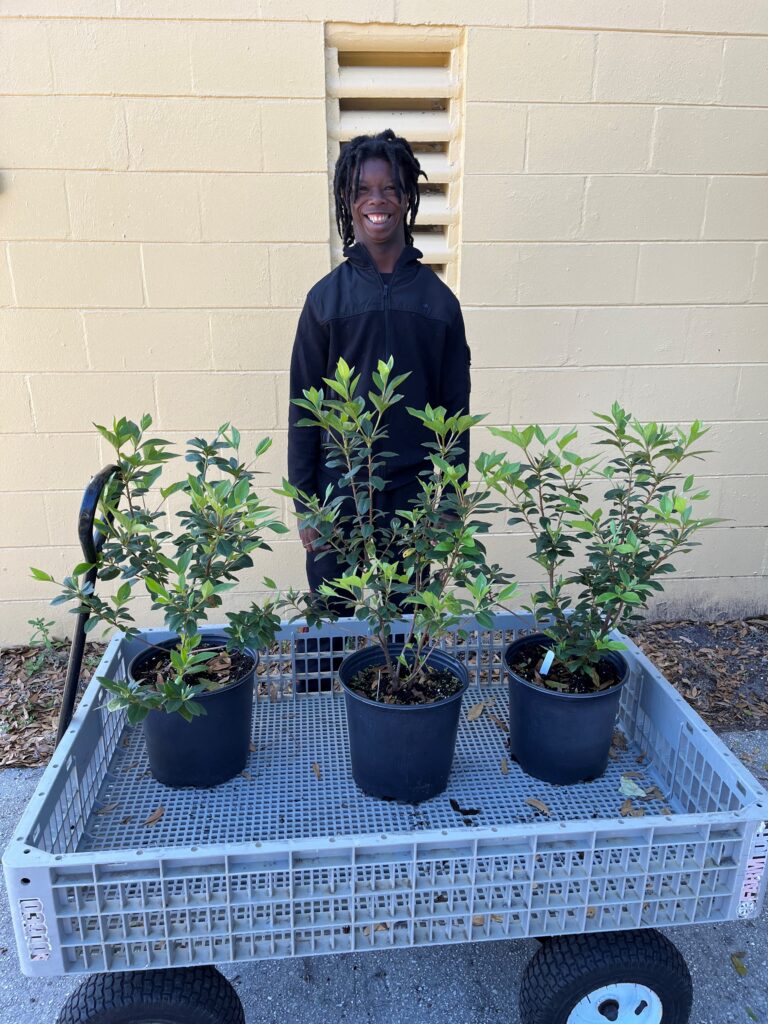
Hands-On at Jean O’Dell Learning Center
Parmer, who began teaching in 1996 and has taught ESE students for 25 years, has been a teacher at Jean O’Dell Learning Center in Bartow since 2016. The Bartow school, which is part of the Polk County Public School system, serves students with significant cognitive disabilities ages 3-22.
Parmer earned his bachelor’s degree in agriculture operations from the University of Florida in 1995. He lives in Bartow, though he’s been farming his whole life and owns property he farms with his brother in Hillsborough County.
At O’Dell, Parmer instructs ESE students of mostly middle and high school ages, with seven to eight students per class on average, all of varying learning capabilities.
“There’s a pretty big variation from one student to another in that respect,” he adds.
One of Parmer’s primary focuses with his FFA students is growing ornamental plants. He says his students are enthusiastic to learn about and grow Florida ornamentals, which can include crape myrtles, junipers, lantanas, and magnolias.
Parmer says his students also focus on growing vegetables and are starting to do transplanting.
“We grow a lot of plants. We start them here from cuttings and grow them, so they see a lot of [the ornamental] industry,” he says. “That’s been the two things that have been the main focus here.”
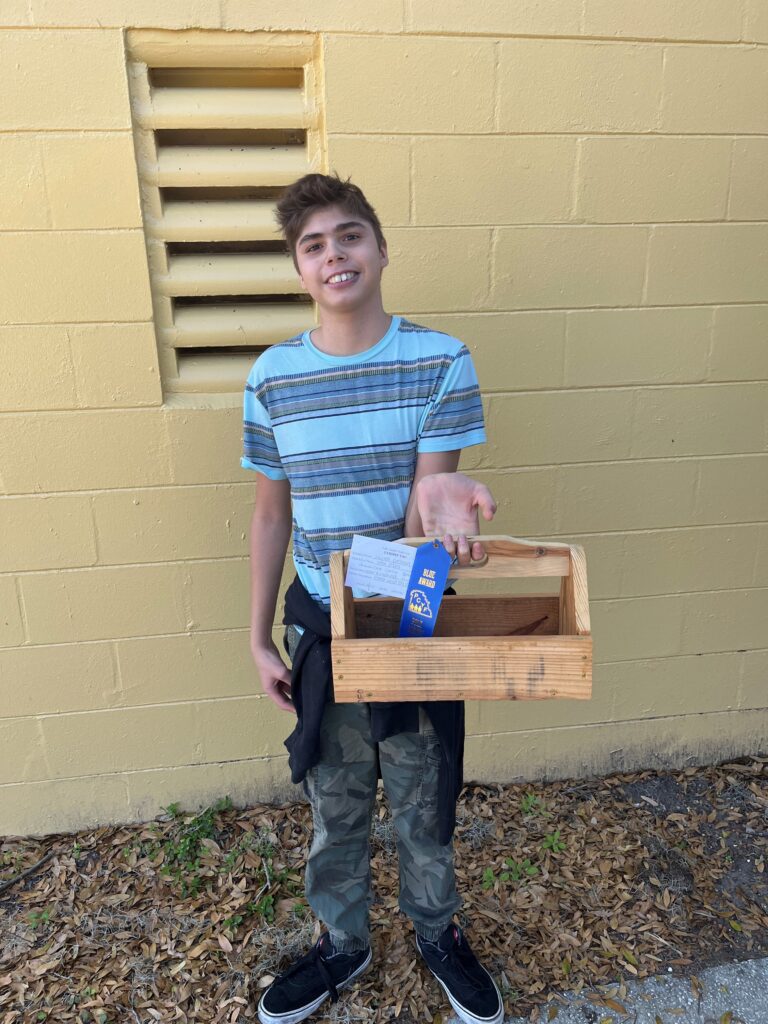
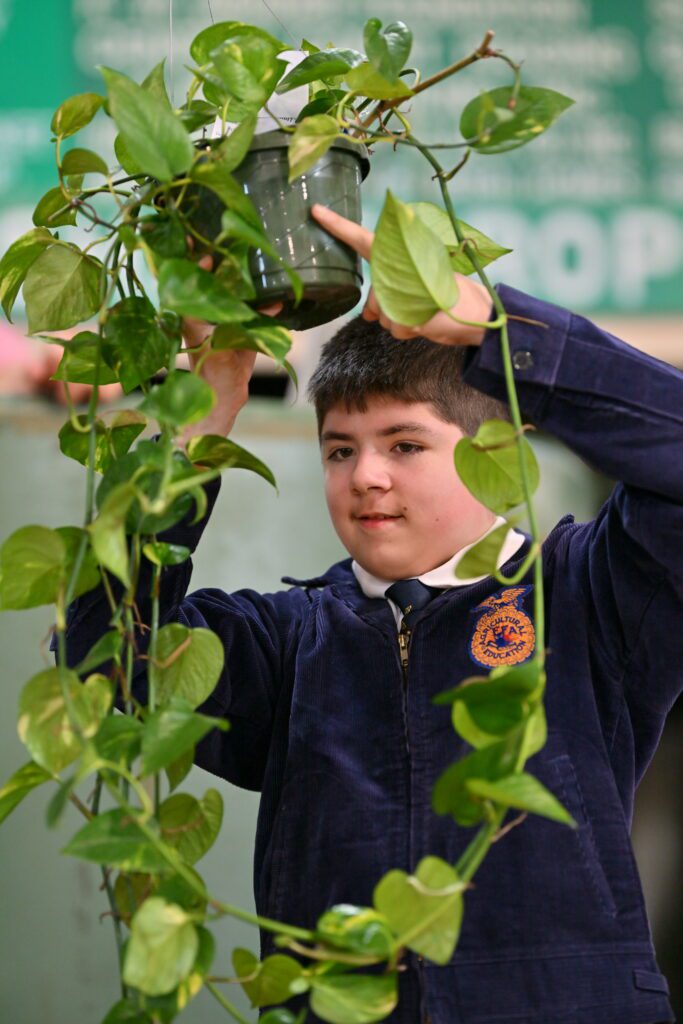
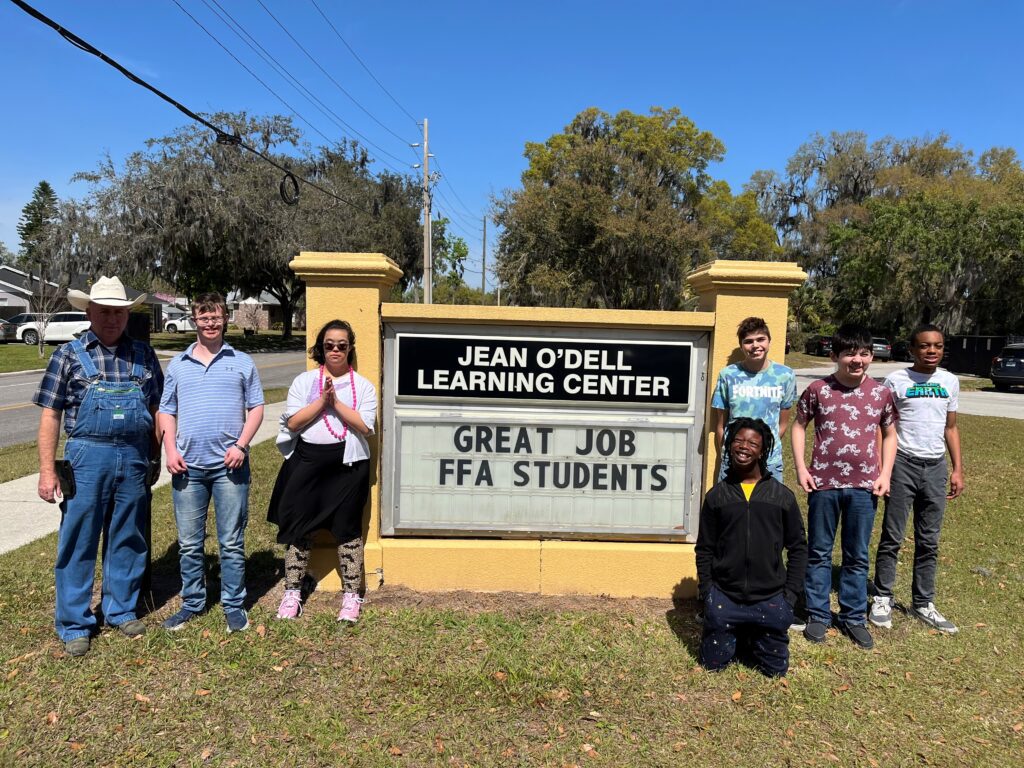
In addition to classroom agriculture and horticulture projects, some of Parmer’s students participate in the annual Polk County Youth Fair, which was held in January in Bartow. Parmer says his students grew plants to enter and took them from cuttings to showtime and judging, “so they’re seeing the entire deal of growing the plants and seeing it sort of start to finish.” Among the plants his students and FFA members entered were azaleas, confederate jasmine, and hibiscus. Some also entered woodworking projects.
Out of 21 projects entered, O’Dell students won 20 blue ribbons and one red ribbon.
The O’Dell students also grow produce, including green beans, wax beans, cucumbers, eggplants, lettuce, broccoli, and cauliflower, in about a 100-foot-by-100-foot area.
In the school’s 20-foot-by-20-foot greenhouse, Parmer and the students grow pothos, spider plants, and ferns. The greenhouse includes raised beds and old mineral tubs to grow plants, similar to growing them hydroponically.
“I do as much hands-on with the students as I can,” he says, adding that they even do some work around the ag department.
“I’ll try to do the work myself with the students; they have taken care of really everything around the ag department.”
Parmer explains that his main goal is to give his students the ability to gain employment in a local industry, like ornamentals. He says he’d eventually like to add small animals to the school’s ag and FFA programs, along with more grow lights and a greenhouse irrigation system.
“I feel successful seeing the changes, seeing what we’ve added out here and what we continue to add,” he says. “Seeing things like that and the students having success at the Youth Fair is great. Those kinds of things are a big part of feeling kind of successful, to be able to do that kind of thing with them and get the schools together. All that stuff adds up.”
Transferable Skills at Doris A. Sanders Learning Center
Farther to the north, students at Lakeland’s Doris A. Sanders Learning Center participate in ag activities that are modified to meet the students’ varying needs. The school, also part of the Polk County Public School system, serves students ages 5-22 with varying exceptionalities.
Having worked at the school since 1985, teacher Barbara Clayton has become a fixture at the school. In her early years at Sanders, she worked alongside ag teacher Sylvester Smith. It was an experience that would impact the rest of her career.
“My true interest and love of all things ag came from my first experiences with Mr. Smith.”
At the learning center, Clayton typically works with students who are high-school age and older. In addition to her homeroom class, she runs
the small FFA program.
The ag activities at the school give the students a platform to compete with other schools.
“They learn the basics of ag and actively participate in experiences that involve competing with other schools in a variety of ag learning areas.”
Those areas include FFA officer opening-closing ceremonies, vegetable ID-judging, plant ID-judging, garden tools, and wildlife-farm animal ID, to name a few.
On campus, Clayton says students grow plants and participate in campus maintenance. Additionally, some students help take care of chickens — cleaning out pens, gathering eggs, feeding — and grow herbs.
Each year, Clayton’s students participate in an annual plant sale. This year, students in the “Transition” program sold fresh herbs. Transition students work on life skills, daily living, and independent functioning skills to help them after exiting the public school system. The Transition program deals specifically with students of varying levels of cognitive ability who require additional accommodations and modifications in order to meet their individual educational needs.
The Sanders students also take part in the Youth Fair, entering bedding plants, ornamentals, foods, vegetables, animals, woodshop, and special projects/presentations. For 2024, students earned blue ribbons for their begonias and were able to participate in the plant auction to sell their plants.
Clayton says the skills the students learn can transfer into the real world.
“We see on a daily basis the increase in personal achievement, self-confidence, independence, leadership qualities, and social interaction skills and effective communication,” she says. “We learn, achieve and believe in our potential.”

